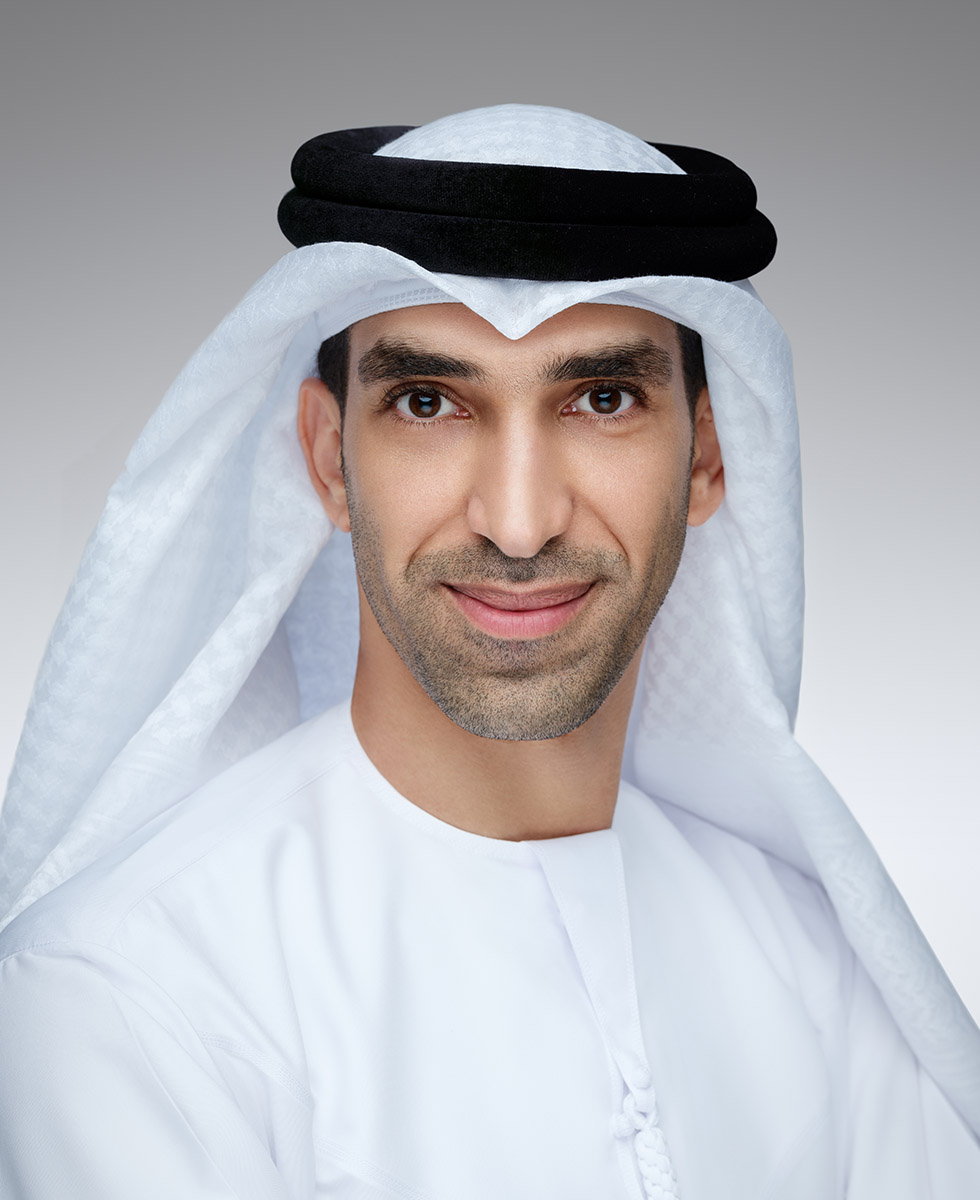UAE Explores New Long-term Commercial Licenses to Boost Economy
The United Arab Emirates is contemplating the introduction of innovative 5- and 10-year commercial licenses for businesses within its borders.
Introducing 5- and 10-year commercial licenses for businesses, involving the debate over silver and gold licenses, aims to enhance government revenue while providing productive ground for economic growth and innovation among entrepreneurs.
In its second assembly for the year 2024, held under the leadership of Abdulla bin Touq Al Marri, the Minister of Economy, the Economic Integration Committee saw significant participation.

Notably, Dr. Thani bin Ahmed Al Zeyoudi, Minister of State for Foreign Trade, and various local economic development department representatives from across the UAE were in attendance.
This gathering focused on a fundamental proposal to overhaul the commercial license regulations in the nation, introducing a competitive five-year silver and a ten-year golden commercial license.
This initiative not only aims to bolster government income but also supports the business and economic continuity, thereby contributing to the nation’s growth and prosperity in alignment with the ‘We the UAE 2031′ vision. This vision aspires to position the UAE as a global hub of innovation.

Future Economic Policies
The committee also revisited the advancements made following the resolutions from its first meeting in 2024. The Minister of Economy underscored the UAE’s commitment to flexible and competitive economic policies and legislation, creating a conducive environment for business and economic ventures.
Such policies have led to an impressive increase in the number of companies within the UAE, exceeding 788,000 by the end of 2023. Furthermore, there has been significant growth in inward Foreign Direct Investment (FDI), enhancing the nation’s economic growth and sustainability.
Strengthening the UAE’s Business Competitiveness
Bin Touq highlighted the committee’s critical role in amplifying the competitiveness of the UAE’s business sector through policy recommendations that streamline business processes, attract investors, talents, and innovators, and establish a comprehensive database for local market companies using state-of-the-art technology.
Moreover, the committee has taken initiatives to regulate construction material prices and combat unjustified price hikes in light of the Cabinet’s decision to postpone the enforcement of Resolution No.138 of 2023.
This resolution pertains to the specifications and penalties for violations concerning heavy vehicle regulations, aiming to curb monopolistic practices and ensure fair prices for consumers.
In its efforts to maintain price stability, the Ministry of Economy has engaged in discussions with economic development departments, chambers of commerce, contractors’ associations, building materials factories, and transport companies nationwide, emphasizing the importance of regular updates on prices of building materials and transportation costs.
Chris Dixon, a partner who led the charge, says he has a ‘very long-term horizon’
Americans now think they need at least $1.25 million for retirement, a 20% increase from a year ago, according to a survey by Northwestern Mutual
Whether you call it charisma, charm or magnetism, some people seem like naturals. Good news: It can be learned.
Great leaders have it. Gen Z has a new word for it. Can the rest of us learn it?
Charisma—or rizz , as current teenage slang has anointed it—can feel like an ephemeral gift some are just born with. The chosen among us network and chitchat, exuding warmth as they effortlessly hold court. Then there’s everyone else, agonising over exclamation points in email drafts and internally replaying that joke they made in the meeting, wondering if it hit.
“Well, this is awkward,” Mike Rizzo, the head of a community for marketing operations professionals, says of rizz being crowned 2023 word of the year by the publisher of the Oxford English Dictionary. It’s so close to his last name, but so far from how he sees himself. He sometimes gets sweaty palms before hosting webinars.
Who could blame us for obsessing over charisma, or lack thereof? It can lubricate social interactions, win us friends, and score promotions . It’s also possible to cultivate, assures Charles Duhigg, the author of a book about people he dubs super communicators.
At its heart, charisma isn’t about some grand performance. It’s a state we elicit in other people, Duhigg says. It’s about fostering connection and making our conversation partners feel they’re the charming—or interesting or funny—ones.
The key is to ask deeper, though not prying, questions that invite meaningful and revealing responses, Duhigg says. And match the other person’s vibes. Maybe they want to talk about emotions, the joy they felt watching their kid graduate from high school last weekend. Or maybe they’re just after straight-up logistics and want you to quickly tell them exactly how the team is going to turn around that presentation by tomorrow.
You might be hired into a company for your skill set, Duhigg says, but your ability to communicate and earn people’s trust propels you up the ladder: “That is leadership.”
Approachable and relatable
In reporting this column, I was surprised to hear many executives and professionals I find breezily confident and pleasantly chatty confess it wasn’t something that came naturally. They had to work on it.
Dave MacLennan , who served as chief executive of agricultural giant Cargill for nearly a decade, started by leaning into a nickname: DMac, first bestowed upon him in a C-suite meeting where half the executives were named Dave.
He liked the informality of it. The further he ascended up the corporate hierarchy, the more he strove to be approachable and relatable.
Employees “need a reason to follow you,” he says. “One of the reasons they’re going to follow you is that they feel they know you.”
He makes a point to remember the details and dates of people’s lives, such as colleagues’ birthdays. After making his acquaintance, in a meeting years ago at The Wall Street Journal’s offices, I was shocked to receive an email from his address months later. Subject line: You , a heading so compelling I still recall it. He went on to say he remembered I was due with my first child any day now and just wanted to say good luck.
“So many people say, ‘Oh, I don’t have a good memory for that,’ ” he says. Prioritise remembering, making notes on your phone if you need, he says.
Now a board member and an executive coach, MacLennan sent hundreds of handwritten notes during his tenure. He’d reach out to midlevel managers who’d just gotten a promotion, or engineers who showed him around meat-processing plants. He’d pen words of thanks or congratulations. And he’d address the envelopes himself.
“Your handwriting is a very personal thing about you,” he says. “Think about it. Twenty seconds. It makes such an impact.”
Everyone’s important
Doling out your charm selectively will backfire, says Carla Harris , a Morgan Stanley executive. She chats up the woman cleaning the office, the receptionist at her doctor’s, the guy waiting alongside her for the elevator.
“Don’t be confused,” she tells young bankers. Executive assistants are often the most powerful people in the building, and you never know how someone can help—or hurt—you down the line.
Harris once spent a year mentoring a junior worker in another department, not expecting anything in return. One day, Harris randomly mentioned she faced an uphill battle in meeting with a new client. Oh!, the 24-year-old said. Turns out, the client was her friend. She made the call right there, setting up Harris for a work win.
In the office, stop staring at your phone, Harris advises, and notice the people around you. Ask for their names. Push yourself to start a conversation with three random people every day.
Charisma for introverts
You can’t will yourself to be a bubbly extrovert, but you can find your own brand of charisma, says Vanessa Van Edwards, a communications trainer and author of a book about charismatic communication.
For introverted clients, she recommends using nonverbal cues. A slow triple nod shows people you’re listening. Placing your hands in the steeple position, together and facing up, denotes that you’re calm and present.
Try coming up with one question you’re known for. Not a canned, hokey ice-breaker, but something casual and simple that reflects your actual interests. One of her clients, a bookish executive struggling with uncomfortable, halting starts to his meetings, began kicking things off by asking “Reading anything good?”
Embracing your stumbles
Charisma starts with confidence. It’s not that captivating people don’t occasionally mispronounce a word or spill their coffee, says Henna Pryor, who wrote a book about embracing awkwardness at work. They just have a faster comeback rate than the rest of us. They call out the stumble instead of trying to hide it, make a small joke, and move on.
Being perfectly polished all the time is not only exhausting, it’s impossible. We know this, which is why appearing flawless can come off as fake. We like people who seem human, Pryor says.
Our most admired colleagues are often the ones who are good at their jobs and can laugh at themselves too, who occasionally trip or flub just like us.
“It creates this little moment of warmth,” she says, “that we actually find almost like a relief.”
Chris Dixon, a partner who led the charge, says he has a ‘very long-term horizon’
Americans now think they need at least $1.25 million for retirement, a 20% increase from a year ago, according to a survey by Northwestern Mutual
















